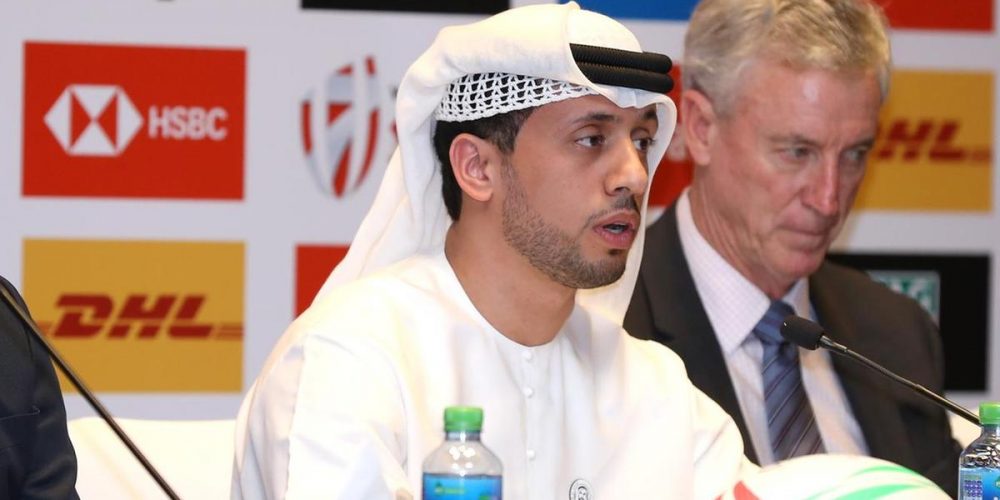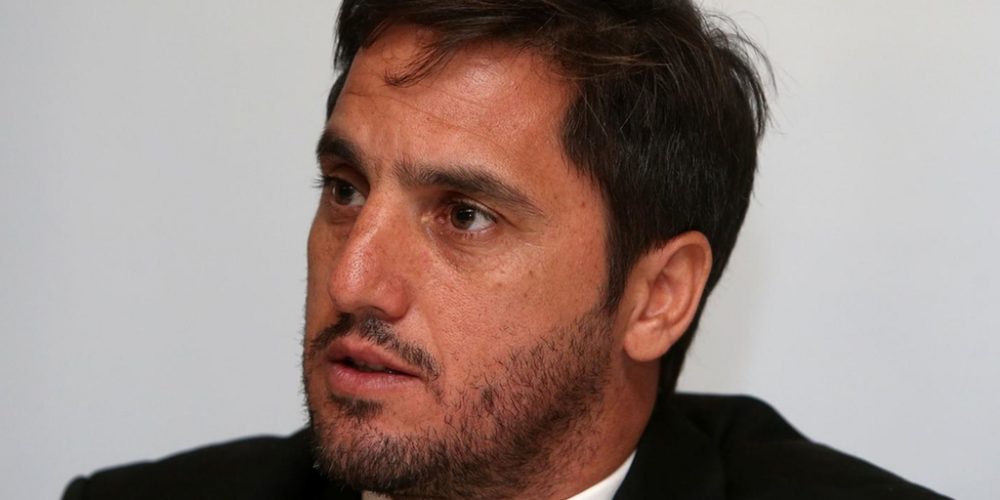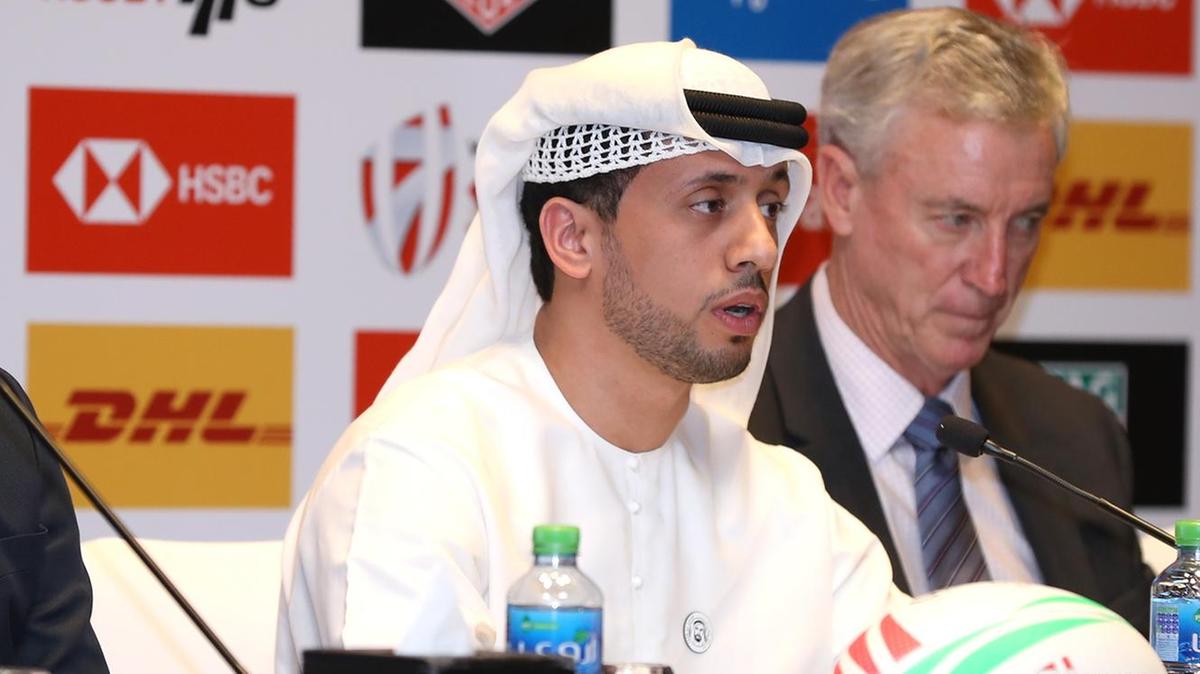The governing body for the sport on the continent have backed the Argentine's challenge to replace Bill Beaumont as the next chairman of World Rugby

Asia Rugby president Qais Al Dhalai has explained why he believes Agustin Pichot is the man to reform rugby’s global governance. Getty Images
Asia Rugby’s president Qais Al Dhalai insists the sport’s global governance must be reformed if it wants to truly expand the game.
Votes have been cast to decide the next chairman of World Rugby, with the decision set to be officially announced on May 12.
The governing body for the sport on the continent have backed challenger Agustin Pichot’s bid to replace Bill Beaumont in the role.
Even though the continent hosted a highly successful World Cup last year, as well as the two most popular legs of the annual Sevens World Series, Asia has just four of 51 votes in the election process.
Japan accounts for two votes, while the rest of Asia have two between them.
Of the 28 voting member unions in Asia Rugby, 24 went for Pichot, two for Beaumont, and there were two abstentions.
Al Dhalai believes the current system of how the sport is run needs to be overhauled, and he believes Pichot is the man to do it.
“The governance structure does not seem fair to me, and does not seem fair to many,” Al Dhalai said. “It was inherited from a long, long time ago.
“For me, as the leader of the region with the biggest potential, the region which staged the most successful World Cup, and will be staging the Olympics, I think this should change. And it should change now.”
Because of the way the World Rugby Council is made up, powerhouse nations like England, France, and New Zealand get three votes each.
Elsewhere, countries like United States, Fiji and Georgia get one vote apiece, while many smaller unions are grouped together and given two votes between them – as is the case in Asia.
Al Dhalai says it is undemocratic, and cites the International Olympic Committee as having the sort of governance structure rugby should aspire to.
“In the Olympics charter, it is clearly outlined that each union should have their own vote,” Al Dhalai said. “That is the principal of equality. That is the principal of democracy.
“How can an international federation have 51 votes only, when they are more than 100 full members?”
Both of the candidates to be chairman of World Rugby have said they will change the system.
In his manifesto, Pichot says, “it is a time for change, to focus our attention, love and dedication on all unions equally”.
“It is time to think of a sport where professional and commercial income is becoming a true benefit for all, by empowering rugby’s growth around the world and by moving on from a time when those benefits were for just a few,” the former Argentina scrum-half said.

Agustin Pichot has launched a bid to become the next chairman of World Rugby. PA
Beaumont, for his part, has said there will be an independent review into the “organisational structure” of World Rugby, including its executive councils.
But Al Dhalai says little has changed in Beaumont’s time in the role so far, and he believes Pichot would bring about change immediately.
“It should happen,” Al Dhalai said. “You need to give a chance to Georgia, you need to give a chance to Romania, to Canada, to Fiji, to USA.
“They are not given a fair chance to compete. Also there is Russia. They are a good market and their national team is doing really well.
“Those people need a voice. You can’t always ring-fence the global calendar to suit just a few. You need to embrace change and equality.
“If Pichot gets in, he will directly start this change. He won’t waste a moment. He has already said that he has struggled internally, that he wanted a nations championship, but it didn’t work.”
Rugby has often spoken of expanding the game beyond its established countries.
Judged on World Cups, little progress has been made in that regard.
At last year’s World Cup in Japan, six of the quarter-finalists were the same as had played at the same stage of the first World Cup 32 years earlier. Seven of them reached the same stage in the 1995 World Cup.
Al Dhalai says a more even spread of World Rugby funding beyond the usual unions would help develop the sport.
And he points to the popularity of sevens in Asia as evidence of the sport’s potential on the continent.
“The two biggest tournaments are in Dubai and Hong Kong, and Singapore is aspiring to be like that, too,” Al Dhalai said. “You can’t neglect Asia. One country, one vote, is more sensible than 51 votes.
“How can you give a single country three votes and a region two? On what basis can you give Wales three, when you give Uruguay or Georgia one? Are you trying to protect something?
“Open it. Let it be an equal sport. Let everyone benefit from the commercial value of World Rugby.”

